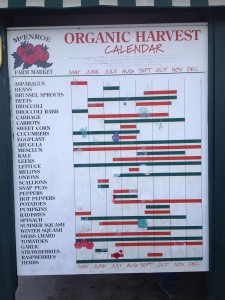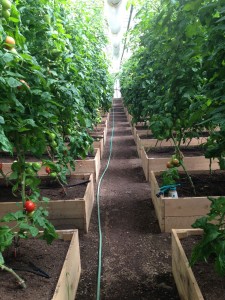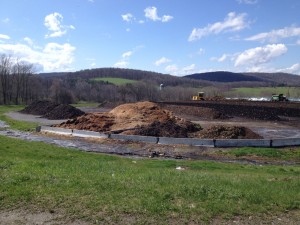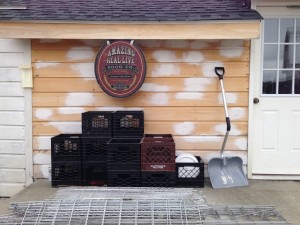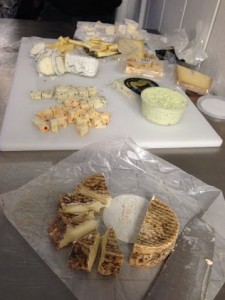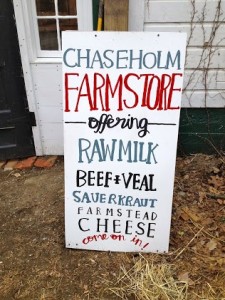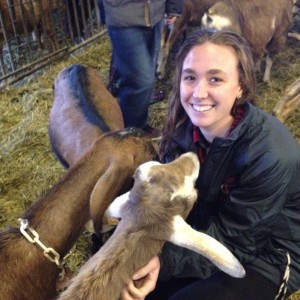On a sunny Thursday afternoon (the first of its kind) I traveled to McEnroe Organic Farm in Millerton, New York. My tour was led by two workers named Lauren and Sean and, unlike most of the organic farmers we have met this semester, Sean actually has a bachelor’s in Environmental Science! Lauren studied art in school, but she still knew her stuff about the science behind the farm. The farm started as a conventional dairy farm but is now a 1500-acre production site. It has been run over four generations, with two of the McEnroe boys currently working on-site and the original owner, Ray, showing up now and then. Since it is certified organic, their pest control methods are limited to natural modes such as sulfur. They grow a plethora of vegetables, herbs and spices, raise cows, pigs and chickens for meat, and run a composting unit to create their own soil– they even brew compost teas. However, not all of their land is used for profit. They keep a lot of woodlands, meadows and ponds intact in order to keep natural habitats in check.
The most “economical” part of their farm is the vast number of tomato plants. McEnroe Organic Farm uses both heated and unheated greenhouses to ensure that they can grow their “Hot House Tomatoes” year-round. We got to take a look inside at the massive, ceiling-height plants, and it really was remarkable! The farmers here use a very unique method when growing their tomatoes; it is something I had never heard of, yet understood easily because of my biology background. They call it “splicing”, and it helps the tomatoes grow big and red without any inorganic compounds being added. This splicing process simply involves them slicing the root-stalk of the tomato and adding fruiting and rooting fertilizers (completely organic, of course). The point of this is to completely line up the vascular tissue of the plant, making for some really huge, really tasty produce! “Tomatoes are a great plant to grow,” said Lauren, “because they’re so economical. You can grow them year round in a heated greenhouse”. So they do. Unlike Monkshood Nursery, where the tomato plants were barely past the seedling stage, McEnroe Farm’s plants were already climbing the twine to the ceiling and being picked and sold daily. It’s amazing what can be done with a bit more space and a few more hands on deck.
Another noteworthy part of the farm is the composting site where they mix local garbage, manure and leaves into completely organic soil that farmers from all over the area buy for their farms and gardens. McEnroe uses most of the compost we produce in their greenhouses, cold frames and fields in attempt promote healthy soil and strong plant growth. We didn’t spend much time at the compost site, but I did learn a fair amount about how smelly, and helpful, this composting facility is for farmers who raise so many plants and animals.
McEnroe Organic Farm is much larger than all of the other farms we have ventured to in #es291. Its impressive production gets it into wholesale mediums like Whole Foods and they also keep up a great farm store on-site which sells both on-farm and off-farm products. You can learn more about McEnroe Organic Farm by following this link!
